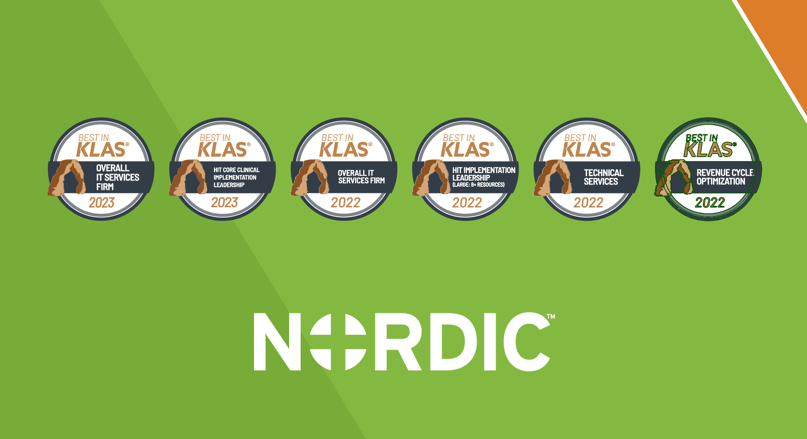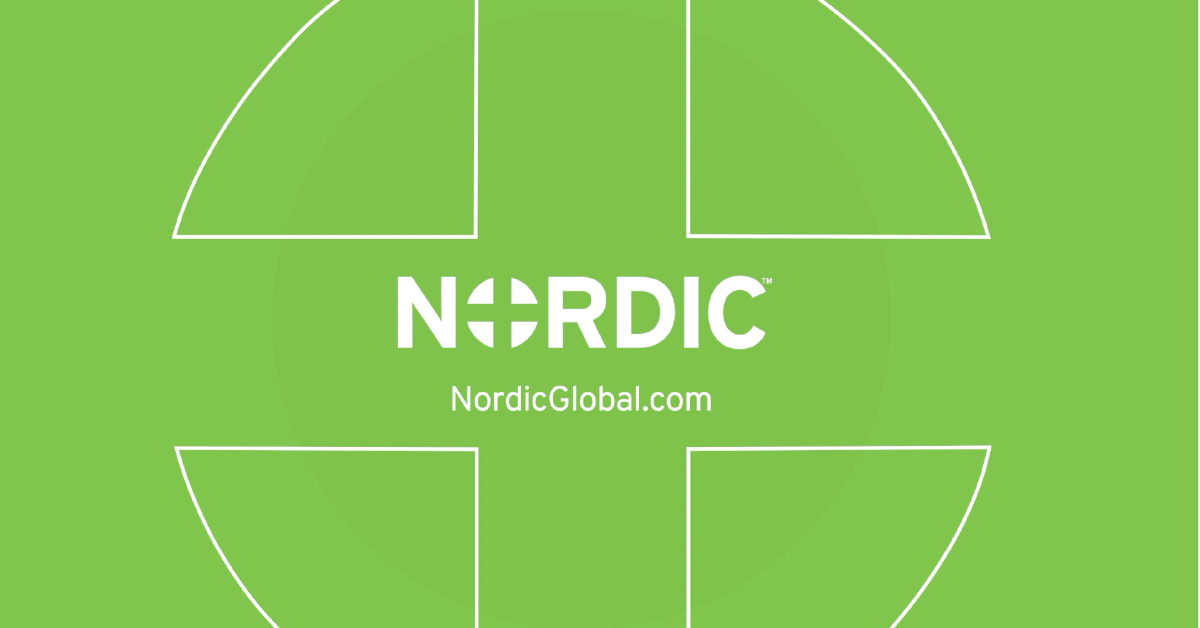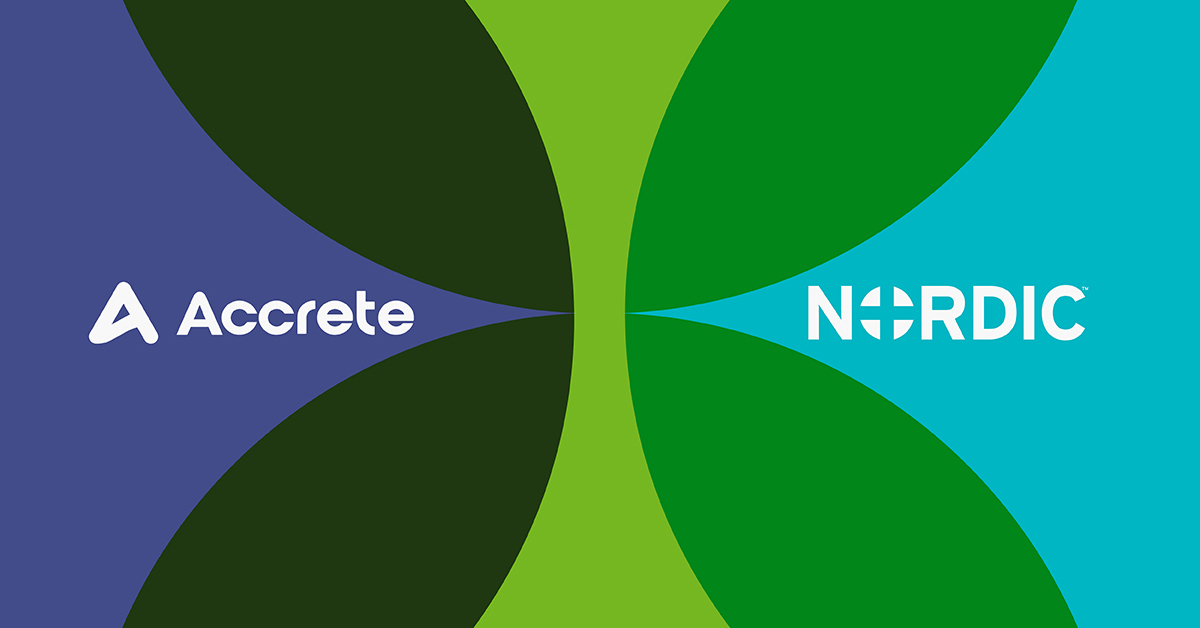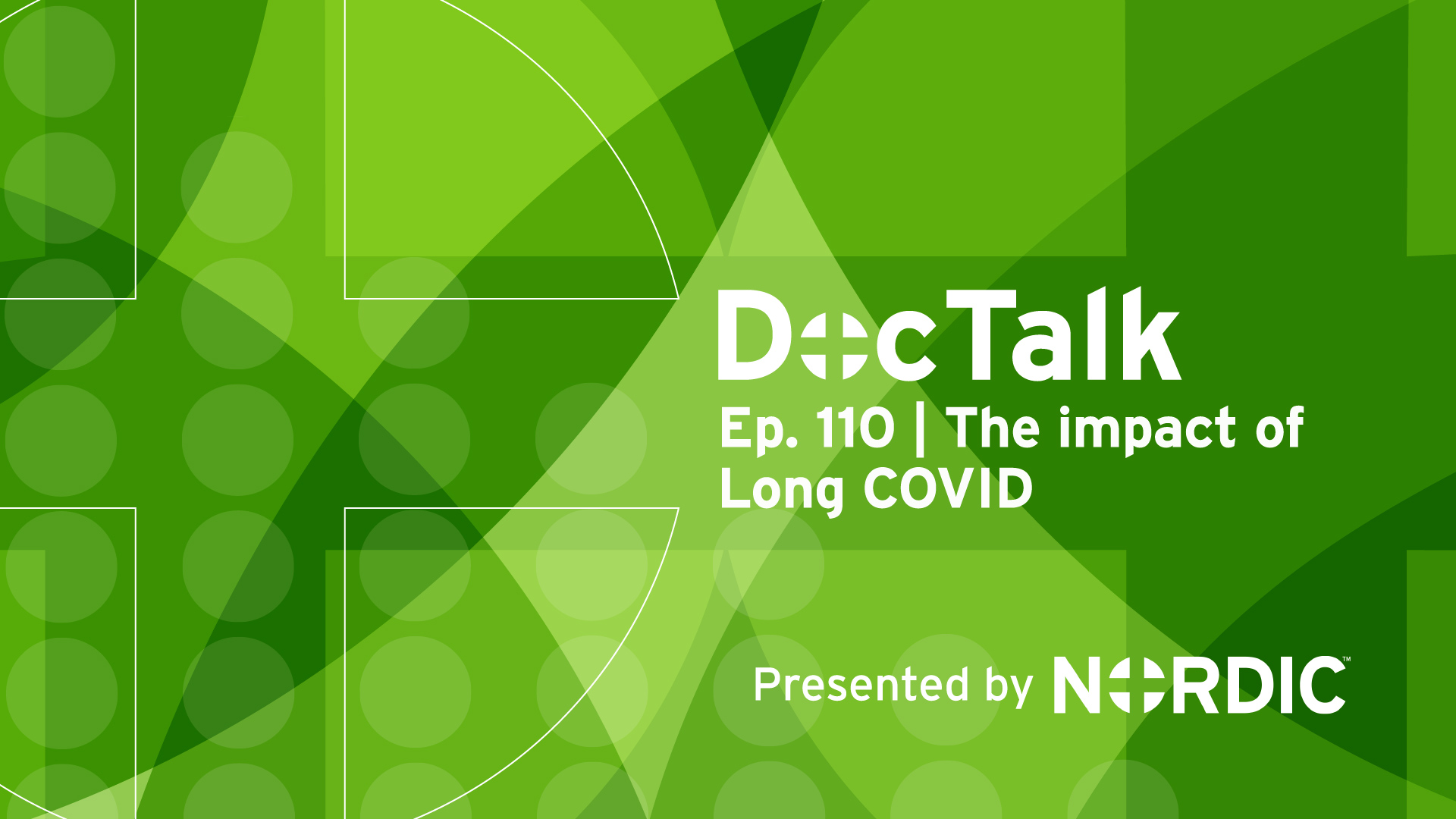Extending your instance of Epic to affiliate organizations can mean a major shift in your organization's mindset. Now that you're a vendor, you'll need to think about a host of things you may not have considered before, among them setting expectations with your affiliates, providing white-glove customer service, and enforcing consequences should expectations not be met.
For this episode of the HIT Breakdown, we sat down with Directors of Affiliate Solutions Scott Isaacson and Andrea Schmeichel to discuss best practices for adopting the vendor mindset. They'll talk through the do's and don'ts of setting expectations with affiliates, committing to a plan together, and building a great relationship at every step of the process.
If you would prefer to read rather than listen, the transcript is below.
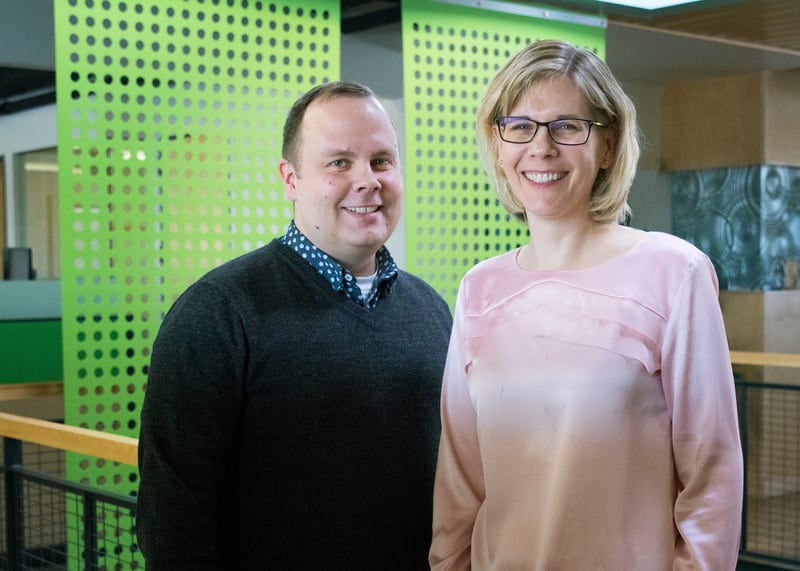
Show Notes
[00:00] Intros
[00:38] Setting expectations with affiliate partners
[01:57] The role of an account manager
[03:50] The customer service mindset
[07:12] Roles and responsibilities during implementation and beyond
[09:25] Setting a go-live date
[12:55] Moving to upgrades and optimization
[14:55] Building the relationship step-by-step
Transcript
Scott: Hi, everyone. My name is Scott Isaacson. We are here today to talk about adopting a vendor mindset, which is something that our clients need to do as they begin to extend their instance of Epic via Community Connect.
I'm joined here with Andrea Schmeichel today. Andrea, why don't you introduce yourself.
Andrea: Hello, I'm also a Director of Affiliate Solutions. Happy to be here with Scott talking about what it means to start and implement a Community Connect Program, understanding that you are a vendor to Community Connect sites.
Scott: Great, thanks. What we're really gonna focus on today is adopting that vendor mindset along the lines of understanding that you're providing software and services outside of your organization.
So this is something that your customer, and that's kind of an important point here, is understanding that your customers are now paying for those services. We're gonna talk about a few of those things today.
So, I think the first thing that I typically think about when we talk about understanding that vendor mindset, is helping your affiliates understand benefits, scope, and cost of their Community Connect project upfront. That's kind of the beginning of that customer service mindset: really making sure that your folks understand what they're getting as part of that Community Connect project.
I think most important to that is beginning that relationship by assigning an account manager to manage the relationship and all of those initial conversations. Important to that as well, is maintaining that same account manager all the way through post-live.
Andrea: Yeah, they really get to know that person and form a strong relationship. Then, that person can help set those realistic expectations because they have the connection back to IT and to the hub organization.
Also, they have the strong personal relationship with the Community Connect site. So it's really a powerful role, one of the most important roles that you'll have in your Connect program.
Scott: Yeah. Where I've seen that role be most important and kind of most effective, is somebody who has kind of a great handle on both the operational side of the house, as well as some of the ins and outs of the Epic install itself.
They can kind of really speak to both sides of that and really help set those expectations. I think more than anything, if they're going through the timeline of a Community Connect install, it really helps them with the curriculum. They can help people understand what they're expecting this week and next week, so your clients are always fully engaged in what's coming down the pike.
Andrea: We could do a whole podcast on the role of that person. Finding the right people with a strong customer service background and really important functional background as well is going to be key to the success of your program.
Scott: Absolutely. Something I think those initial conversations that an account manager will have as they're working with folks, and I would consider a part of sales early on, is really understanding what is the scope of the program and what's it going to cost.
Most clients are going to first come to you and say, "What does it cost?" I think it's important for them to understand outside of the price, what is the scope? What are they getting as part of that?
Andrea: This can be new for a lot of organizations. If you're used to working with your owned sites, not necessarily independent sites, then they're not gonna come to you and say, "I need to know what I'm getting for the price. I need to know what everything costs. I need to understand how you're gonna serve me and what kind of service I can get from you."
It's mostly, they're glad to have the system. They're part of your organization, and you already know them. The way I describe it is, it's like having dinner at your aunt's house versus going to a restaurant. When you go to your aunt's house, you're happy with whatever she serves you. You're happy for the conversation. You already have an existing relationship with her. You understand some of her quirks. But when you go to a restaurant, you're paying for the experience. You want to be served and you want a certain quality of food. So I think the scope and cost is some of the most important things.
They need to understand, the Community Connect site needs to understand what they're getting, but also what they're not getting. Being very clear about, here's our price and here's what we're offering for the price.
The way that a lot of organizations successfully do this is they say what they're offering for the price, but then they also offer what we call add-on packages. So it can be a way of saying, "Here's what you get for this price. Then if you want more than that, we're certainly willing to offer that. We're going to offer that to you at a cost." Some things I've seen be great add-on packages are maybe some additional training, if they want additional one-on-one support.
Or extra reports. Most of the scope is, we're gonna extend to you our existing reports. If you want some custom reports, we can provide those to you at an additional cost. Having a scope that is written down and clear is really important. As someone at the Community Connect site, I want to understand what I'm buying. As someone at the hub site, I want to understand what I'm selling. Those need to be the same.
So what we really recommend is writing down that scope and going through it line by line, then having each organization sign off on it at a certain point in the implementation, so that you know that it's completely clear and you have no misunderstandings.
Scott: I totally agree. What I typically find is that there's contracts, which are many, many, many pages that have all of the details that we typically want our folks to understand and sign off, but we typically want something a little bit more digestible. We've even seen folks go line by line and say, "Yep. I understand I am getting this. I understand I'm not getting this." It's a good way just to make sure. It's a great way to kind of level some of those expectations, as well.
Andrea: Another thing to think about and help the site understand is that this is a small practice. So any kind of productivity hit or taking staff out for training can also be a cost to them. It's important to help them understand that, too. When will we need your staff for appointment conversion? When will we need your staff for clinical dress rehearsal? What will your provider productivity look like in the first few weeks? It might be reduced as they get used to the system. Helping them understand all of those costs and how that might affect their small practice.
Scott: Definitely. They often times don't consider the hit to productivity. But they also might not be thinking about if they're talking about their entire cost is, what is hardware gonna cost me? Do I need to upgrade my internet connection? Do I need a new printer? Part of that vendor mindset is really helping your partners understand all of those costs, so they understand them and aren't surprised by them halfway through the install to say, "Wait. I have to buy five new printers, or I need new monitors?" That can really be a big hit to that vendor mindset.
Something else I would also consider as just a suggestion is, really think about your own personal experience. Either buying a car, service and software, what's the kind of customer service that you would like to receive? It's the same thing now that you are selling a product. That's kind of the key thing there is you're selling services and software. Your folks expect a level of customer service to go along with that.
Andrea: I think this leads into some of the roles and responsibilities during the implementation and beyond. Sometimes an organization can get so focused on the implementation and who they are dealing with every day in that implementation that they can forget that there's leadership as well, additional folks that they need to bring in and make sure that they are building relationships with. If this is successful, it really is a long-term relationship.
If you are really interested in developing strong relationship at all levels, it's important to build relationships leadership to leadership, for the hub site and for the Community Connect site, as well for physician-to-physician relationships and those folks on the ground. This is where the account manager can help but where we also need a commitment from the hub organization to provide that leadership connection. So that when you do have bumps in the road, that you have that relationship and you can go to each other and work it out.
Scott: Totally agreed. I think it's part of setting those expectations and engaging the right folks to make sure they understand the time commitment that they are putting into this. This is not popping a CD-ROM into the drive and pressing install. There's commitment, and there's a lot of expectations around input into the install as well. It's definitely not a really straightforward process in terms of what you're getting. So having that time commitment, making sure that folks really understand what they need to provide input on.
It's also about keeping up that weekly curriculum, so they really know what they have to commit to this week, next week, and throughout the entire install.
Andrea: That's the best way to get the good commitment from the site, is giving them a clear idea of what that actually is. So having a week by week where you say, here's the agenda for each week. Here's what we need to do for each week. Here's who will be needed for each week of the implementation.
The more in advance they can get that, then the more available they can make those people, and the more likely they are to be able to meet that commitment. Again, it kind of goes back to that theme we've been talking about where if you let them know what your expectations are, what you need from them, and what they're gonna get from you, then you're more likely to have a successful partnership.
I think something we want to talk about for sure is when do you set a go-live date, because that's a big deal for the practice. It's a commitment from the hub organization to really meet that go-live date.
One of the things that we advise our clients about is being careful to have certain criteria that you want to be set prior to setting a go-live date. Something like having the hardware vendor selected and the hardware date committed and certainly having the legal contract signed. I think it's important to think about what are your line-in-the-sand items that you want that site to meet before they get a go-live date from you and understanding that you may need to be a little flexible. You may have certain practices where something happens – life happens or there is some kind of thing – that you want to be a good partner to. You want to accommodate some of those unforeseen things that can require a little flexibility.
So maybe we can talk about when things don't go well. Certainly, we want things to go well but there may be times when the implementation isn't going well or a site isn't paying you or you don't have a good partnership. What do you do then? I think some of the things we've already talked about can help with that. Being clear about expectations and scope. Being clear about what's included in the price, what's extra. Understanding from your perspective as a hub organization, what are you willing to give this practice. Like we said, unforeseen things can happen. Maybe you're gonna jump in and be a good partner and just provide something.
Then, having that good leadership communication so that when things do happen, you can weather the storm.
Scott: Something else we talk a lot with our clients about is being physically present. Having that account manager regularly engaged can also help them really smell smoke. You want to understand the relationships and see how the clinic works. The most effective account managers I've ever worked with round regularly, know all of the key players in the clinic, for the most part understand the workflows that are there. They know what their business is like, and that really helps them be proactive in hopefully avoiding some of those things that can be detrimental to that relationship.
Andrea: In the rare case where you may want to uninstall or they may want to uninstall, it's important to have language in the contract about when and how this will happen. What are you as a hub organization going to say is grounds for uninstalling? It's important to have that set up, decided, and agreed upon up front. So that if that does happen, then you have a procedure that you can follow.
Scott: Absolutely. I think as part of avoiding that and keeping up that relationship, there's some financial things that you can do as well. Some folks may call it a good install where you can basically offer a higher subsidization if they meet a certain set of criteria.
That's helpful in them understanding all of the things that they are responsible for and really giving them even a further commitment to that relationship. I think that's definitely gone a long way, keeping in mind that definitely has to fall within the regulations of Stark as well.
Andrea: Certainly, every conversation about Community Connect has to talk about ongoing support. The focus is very much on the marketing and sales at the beginning and then the implementation. But ongoing support is going to be the phase that you'll be in for the most amount of time. Go-live, as we talk about in every implementation, is just the beginning. It's important to have a strong support plan and think about how you're going to integrate these new Community Connect sites into your existing structure.
How will they be involved in upgrades and optimization, knowing that they may expect to be? They may expect a certain level of support for upgrades and optimization. What do you mean by concierge support if you're using that word? What kind of support are you prepared, as an organization, to provide to that affiliate and to your affiliates overall? What do you want them to say about your program when they talk to their partners in their community? All of these things need to be taken into account as you're thinking about how to do support.
One thing that we find has been really helpful, when you get a certain number of sites, is having independent user group meetings. Get the sites together to talk and do knowledge-sharing, and work with each other. Another great thing that many times happens with this is that you have people float to the top who are leaders in that independent organization or within that user group. They can then work directly with you to help on your long-term support plan.
Scott: Definitely. I always say my favorite way to talk to a physician is through another physician. So getting those relationships out there in the community definitely goes a long way and shows your commitment to that community.
I think even taking a step back from that, that long-term support, it can be as simple as ensuring that your help desk knows incoming calls from somebody that might not be an owned organization is part of that Community Connect.
It goes all the way back to what your internal communication plan looks like. The last thing you would ever want is one of your Community Connect clients calling in and being turned away at the help desk just because they're not an owned clinic. I know that sounds really simple but it's definitely something that we've seen in the past, and that can be a very big dissatisfier when it comes to that vendor relationship.
Andrea: So lessons learned: Get the basics down, and then build on those to have a more robust program.
Scott: Absolutely. So Andrea, I know we've definitely covered a lot today, and we're just scratching the surface of what it means to be a vendor as you go through your Community Connect journey. I was curious if you had any final thoughts or comments.
Andrea: I think the final thoughts are really, it's all about relationship-building. It starts at every level. It kind of comes to a head with the account manager as that relationship owner. Each person along the line that interacts with your Community Connect site is an ambassador for your organization. It's important to stress that as you go along, that they may not know yet how they feel about you. It's important as you have each touchpoint to improve that relationship and make them feel like that was a really good experience.
Scott: Absolutely. Andrea, thank you very much for your time and your conversation today. If anyone would like to know more about this or anything related to Affiliate Solutions, we definitely encourage you to reach out. We'd be happy to have a chat.
Andrea: Thank you.
